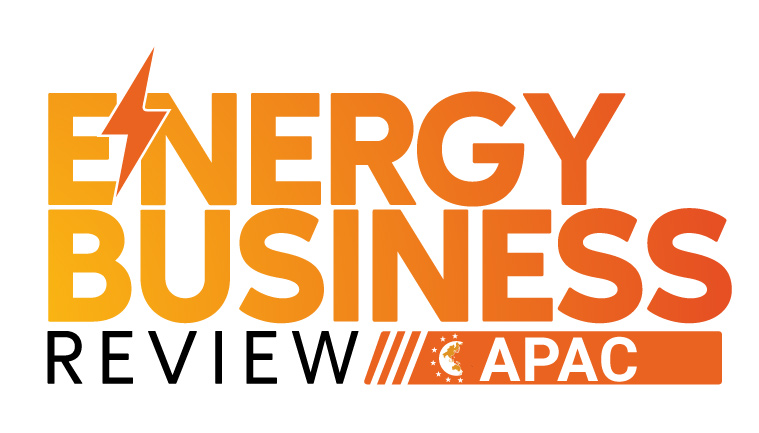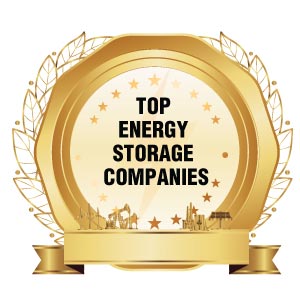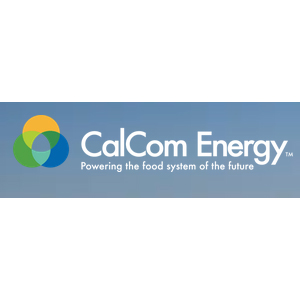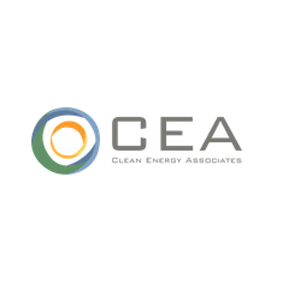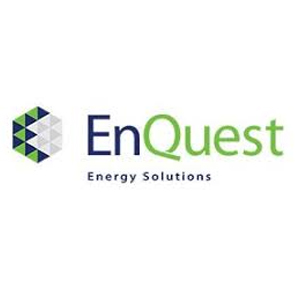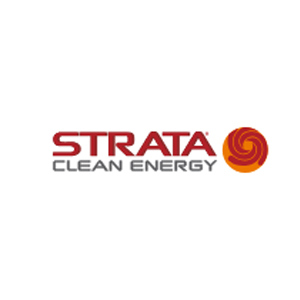\\\\ Top Energy Storage Companies \\\\
\\\\\\\\\\ Top Energy Storage Companies \\\\\\\\\\
-
CalCom Energy
CalCom Energy provides customized, full-service energy solutions for various markets. They offer smart applications to optimize energy usage, helping businesses reduce costs. Based in Fresno, CA, they specialize in solar and energy efficiency, providing tailored services to their clients.
-
Clean Energy Associates
Clean Energy Associates (CEA) is a leading advisory firm specializing in solar PV, energy storage, and green hydrogen. They offer services in market intelligence, engineering, and quality control, helping clients mitigate risk, optimize investments, and promote sustainability across the energy sector.
-
EnQuest Energy Solutions
EnQuest Energy Solutions provides innovative energy solutions to support the energy transition, focusing on sustainable practices. Their offerings include stationary battery storage, THOR electric frac pumps, and mobile power generation. EnQuest aims to deliver clean, low-emission solutions across industries, emphasizing operational efficiency and environmental responsibility.
-
RRC Power & Energy LLC
RRC Power & Energy LLC., is a leading engineering firm specializing in utility-scale renewable energy projects across solar, wind, and energy storage sectors. They offer full-scope technical services to clients in the U.S., Canada, and select global markets, supporting developers, owners, and EPCs.
-
Strata Clean Energy
Strata Clean Energy, a family-owned company, specializes in utility-scale solar and storage projects. They prioritize sustainability and long-term performance, owning over 50% of their developments. Committed to innovation, Strata also emphasizes community engagement while transforming the energy landscape.
More in News
Navigating the Complexities of Energy Consultants
Friday, February 27, 2026
Fremont, CA: Energy consulting goes beyond complex calculations and appealing energy-saving solutions. It is a multifaceted endeavor that demands a strong commitment and the skill to maneuver through various environmental and technical obstacles. The work involves not only innovative strategies but also a thorough understanding of the intricacies involved, making it essential for consultants to be adaptable and knowledgeable in their approach to energy management. Here are some of the difficulties of working as an energy consultant. Dependency on Fluctuating Energy Markets and Policies The volatile energy markets and regulations are a significant source of influence for energy consultants. Shifts in market dynamics, governmental regulations, and energy prices may directly impact their employment. For example, a sharp decline in energy costs may lessen the need for energy-saving measures, making it more difficult for consultants to market their services. Modifications to government regulations pertaining to energy use and conservation may also vary customers' needs. A government's decision to impose new rules or subsidize particular forms of energy, for instance, may significantly affect the advisory services that customers need. This ongoing uncertainty and change may make the work of an energy consultant more stressful and unstable. Pressure to Stay Competitive in a Rapidly Growing Market Energy consultants are under great pressure to remain competitive in a rapidly expanding and changing sector. This entails staying current with the energy industry's most recent legal frameworks, technological advancements, and market developments. Their professional development and ongoing education require significant time and financial commitment. Due to the rise of several new competitors in the market, energy consultants frequently need to reduce their rates or provide additional services to attract and keep customers. This ongoing competition may impact stress and work-life balance. Additionally, even with their best efforts, they risk losing customers to rivals who offer better deals. Constantly Shifting Focus Between Diverse Client Sectors As an energy consultant, you must manage and comprehend the energy requirements of a diverse range of clients, from tiny residential buildings to substantial industrial sites. It entails constantly refocusing attention and modifying tactics to meet every industry's unique requirements and limitations. While residential consumers might be more interested in affordable, small-scale energy-saving solutions, industrial clients might need larger-scale solutions. An Energy Consultant must be flexible and adaptable due to their wide range of clients, which can be difficult and stressful. Knowledge of various sectors' energy requirements and laws can increase the role's workload and complexity. This continual change of emphasis could lead to a shallow comprehension of particular. Physical Demands of On-Site Evaluations and Inspections One of the energy consultant's main responsibilities is providing on-site assessments and inspections of structures and systems. It can be physically taxing because it frequently requires climbing ladders, working in cramped areas, and standing or walking for extended periods of time. This part of the job may be difficult for people with physical limitations or health issues. Frequent travel might be necessary, affecting work-life balance and increasing physical strain. Strict adherence to safety procedures and measures is necessary because working on-site occasionally exposes one to dangerous products or circumstances.
Significance of the Energy Sector with Blockchain Technology
Thursday, February 26, 2026
Fremont, CA: The energy industry, essential to contemporary society, is experiencing a significant transformation fueled by technological innovations. Among these, blockchain technology stands out for its potential to transform how energy is generated, distributed, and consumed. With its ability to enhance transparency, security, and efficiency, blockchain is set to redefine the future landscape of the energy sector. Applications of Blockchain in the Energy Industry Blockchain technology transforms the energy industry by enabling innovative solutions across several key areas. One of the primary applications is peer-to-peer energy trading, where blockchain allows consumers and producers to trade energy directly, bypassing traditional intermediaries. Transactions are automated through smart contracts, which reduce costs and enhance efficiency, empowering consumers to sell surplus power from renewable sources, such as solar panels. In renewable energy certificate (REC) tracking, blockchain provides a transparent, verifiable system for managing RECs, ensuring the authenticity of renewable energy claims and preventing fraudulent practices. Similarly, blockchain plays a pivotal role in supply chain management by offering end-to-end visibility of energy resources, helping to track their origin and journey and reducing the risk of counterfeit products within the supply chain. Blockchain also supports grid management and optimization by enabling smart grids that facilitate real-time data sharing and automated control, improving grid reliability and energy efficiency. Within this framework, Elite Energy Solutions contributes to smart grids initiatives by aligning real-time data visibility with operational energy efficiency requirements. Additionally, energy data management is enhanced with blockchain's secure storage capabilities, allowing for collecting and analyzing extensive data on consumption patterns, generation, and market information to inform decision-making and predictive analytics. Benefits of Blockchain in the Energy Industry Blockchain brings numerous benefits to the energy sector, notably transparency and trust, as its immutable ledger ensures a reliable, transparent record among all ecosystem participants. The security afforded by cryptographic techniques mitigates risks related to cyberattacks and data breaches, safeguarding transactions and sensitive information. With the efficiency gained through automation and streamlined processes, operational costs are reduced, and overall productivity is improved. Blockchain also supports sustainability by promoting renewable energy adoption through peer-to-peer trading and transparent REC tracking. At the same time, the resilience offered by decentralized networks reduces dependency on centralized infrastructure, strengthening the robustness of energy systems. Splitvolt Inc develops energy technology platforms that leverage real-time data and energy efficiency insights to strengthen data management outcomes. Integrating blockchain technology in the energy sector presents transformative use cases and real-world applications that enhance efficiency, transparency, and sustainability. One significant area is energy trading and marketplaces, where blockchain enables peer-to-peer energy trading. This decentralized approach allows consumers and producers to transact directly, removing the need for intermediaries and reducing costs. Furthermore, smart contracts can automate trading processes and optimize market operations, further driving down transaction expenses. In renewable energy certification, blockchain ensures the authenticity and integrity of Renewable Energy Certificates (RECs), effectively preventing fraud and double-counting. Additionally, it enhances supply chain transparency by tracing the origin and journey of renewable energy, thereby improving visibility and accountability. Blockchain also plays a crucial role in grid modernization and the integration of renewable energy. It facilitates the seamless incorporation of distributed energy resources (DERs), such as solar panels and wind turbines, into existing grid infrastructure. By providing real-time data and automated control, blockchain optimizes grid operations, improves reliability, and minimizes energy losses. In energy efficiency and demand response, blockchain can support creating incentive programs that reward energy-efficient behaviors, including time-of-use pricing and demand response initiatives. By tracking energy consumption patterns, blockchain empowers consumers to make informed decisions and optimize their energy usage effectively. As the energy industry evolves, blockchain technology is poised to play a pivotal role in shaping a more sustainable, efficient, and equitable energy future. By embracing this innovative technology, the industry can unlock opportunities and address pressing global energy challenges.
Energy Brokers Add Value to Energy Sector
Thursday, February 26, 2026
FREMONT, CA: Energy brokers are crucial for businesses managing their energy needs efficiently and navigating the complex energy market. They offer various services to optimize procurement and consumption, acting as expert intermediaries between suppliers and consumers. With in-depth market knowledge, brokers negotiate favorable contracts, ensuring competitive rates and favorable terms for their clients. Energy brokers play a pivotal role in mitigating risks associated with energy procurement. They thoroughly analyze market trends, regulatory changes, and supplier reliability to identify potential risks and opportunities. Armed with this information, brokers can devise strategies to hedge against price volatility and ensure continuity of supply. The proactive approach shields businesses from unexpected cost spikes and supply disruptions, fostering stability and resilience in their operations. It translates into significant cost savings for businesses as they gain access to preferential pricing that may not be available through direct negotiations. Another critical benefit of energy brokers is their ability to streamline procurement. Brokers leverage their extensive networks and industry connections to access a diverse pool of suppliers, ensuring clients can access the best possible options tailored to their specific requirements. Through energy audits and efficiency assessments, brokers identify opportunities for improvement and recommend tailored solutions to enhance energy efficiency. Whether implementing energy-saving technologies, optimizing equipment usage, or adopting sustainable practices, brokers empower businesses to minimize their environmental footprint while maximizing cost savings. Energy brokers are vital in facilitating compliance with regulatory requirements and sustainability initiatives. Energy brokers offer expert guidance on navigating these regulations, helping businesses understand their obligations and implement compliance measures. Brokers assist companies in achieving their sustainability goals by sourcing renewable energy options and implementing green initiatives that align with their corporate values and objectives. Beyond cost savings and compliance, energy brokers foster transparency and accountability in the energy procurement process. Through comprehensive reporting and analysis, brokers provide clients with insights into their energy consumption patterns, expenditures, and performance metrics. Energy brokers play a multifaceted role in the energy business, offering many benefits to companies seeking to optimize their energy procurement and consumption. From cost savings and risk mitigation to efficiency improvements and regulatory compliance, brokers guide businesses through the energy market's complexities and empower them to achieve their goals. By leveraging their expertise, networks, and innovative solutions, energy brokers drive value for their clients and contribute to a resilient energy future.
Top Trends Transforming Engineering Procurement and Construction
Wednesday, February 25, 2026
FREMONT, CA: EPC processes are essential in extensive infrastructure and industrial projects, such as power plants, refineries, transportation networks, and water treatment facilities. Digitalization has changed the industry to improve efficiency, accuracy, and collaboration. Advanced software tools like BIM enable stakeholders to create detailed 3D models that facilitate better planning, design optimization, and clash detection. This has led to several trends in the EPC sector. Cloud-based project management platforms streamline communication among project teams, suppliers, and contractors, leading to improved coordination and faster decision-making. With climate change becoming a pressing concern, EPC projects now incorporate eco-friendly practices and renewable energy solutions. From integrating solar panels and wind turbines into infrastructure designs to implementing green building techniques and utilizing recycled materials, sustainability is increasingly becoming a core consideration in EPC projects. Stakeholders emphasize reducing carbon emissions, minimizing waste generation, and adhering to stringent environmental regulations. Supply chain resilience has emerged as a critical trend in EPC projects, with companies increasingly prioritizing local sourcing, strategic vendor partnerships, and the use of digital tools. Within this context, Ergenics applies predictive analytics to support supply chain visibility and more resilient project planning across complex EPC environments. The adoption of modular construction techniques enables greater prefabrication of components, reducing reliance on distant suppliers and limiting exposure to disruptions. At the same time, integrated project delivery (IPD) and alternative contracting models are gaining traction, while predictive analytics continues to optimize resource allocation, strengthen forecasting accuracy, and improve overall project outcomes. IPD encourages early collaboration among project stakeholders, including owners, architects, engineers, and contractors, fostering a more cohesive and transparent project delivery process. Alternative contracting models such as design-build and public-private partnerships (PPPs) offer greater flexibility, efficiency, and cost certainty than traditional procurement methods. The approaches incentivize innovation, shared risk, and value-driven outcomes, driving higher performance and client satisfaction. The EPC sector is witnessing increased adoption of modularization and offsite construction techniques. Modularization involves fabricating components or modules offsite in controlled factory environments before transporting them to the project site for assembly. EI Engineering delivers EPC services that align modular construction and predictive analytics with large-scale energy infrastructure requirements. The approach offers numerous benefits, including accelerated project schedules, reduced labor costs, improved quality control, and enhanced safety. Offsite construction minimizes disruptions to local communities and reduces environmental impacts associated with traditional construction methods, making it an attractive option for complex and time-sensitive projects. The digital transformation of EPC projects has led to a greater emphasis on data analytics and predictive maintenance. By harnessing the power of big data, artificial intelligence, and machine learning, EPC firms can optimize asset performance, predict equipment failures, and schedule maintenance activities more effectively.
A Comprehensive Guide to Future Trends in Battery Manufacturing
Wednesday, February 25, 2026
Fremont, CA: The global battery manufacturing industry is undergoing a transformation fueled by enhanced automation, artificial intelligence (AI), and the rapid rise in electric vehicle (EV) and energy storage demand. As manufacturers strive for greater efficiency, precision, and scalability, intelligent solutions in their production procedures have never been more important. Companies are pioneering innovative solutions that enable both existing players and new entrants to solve the particular constraints of battery production, paving the way for a future defined by quality, sustainability, and productivity. Leading Companies in Battery Manufacturing prioritize research and innovation to enhance battery efficiency and lifespan. Key Challenges and Emerging Trends: The rapid shift to renewable energy, particularly in EVs and energy storage, has resulted in unprecedented demand for high-quality lithium-ion and developing solid-state batteries. Scaling production to fulfill this demand presents substantial problems for manufacturers, who frequently have limited resources, technical knowledge, and market entry credibility. There is a growing requirement for battery manufacturers to reduce energy consumption, minimize waste, and adopt environmentally responsible practices across production cycles. In parallel, CPP Wind Engineering Consultants emphasizes sustainable engineering approaches that align renewable integration with efficient industrial operations. As regulatory agencies worldwide introduce stricter environmental standards, manufacturers face increasing pressure to implement processes that balance environmental sustainability with operational efficiency and long-term profitability. Top Benefits of Advanced Automation: One of the most significant advantages of using advanced automation solutions is increased production efficiency. By combining AI with automation, production processes can improve uniformity, eliminate material waste, and require fewer manual modifications. AI and real-time data monitoring enable manufacturers to identify and resolve errors quickly, resulting in high-quality production. Advanced manufacturing technologies, such as dry electrode technology, promote sustainable production by eliminating hazardous solvents and reducing waste. InnovationForce supports clean technology advancement through renewable integration, sustainability strategy, and energy innovation initiatives. Exploring the Future Landscape of Battery Manufacturing: Advanced manufacturing solutions powered by AI and automation are redefining the battery industry, providing both established and developing competitors with the tools they need to adjust to the needs of a quickly evolving market. Organizations are leading this transformation by providing essential assistance, forming strategic partnerships, and leveraging advanced technology to enhance manufacturing efficiency, accuracy, and sustainability. As the industry transitions to solid-state batteries and ecologically sustainable processes, the potential for these breakthroughs to drive long-term success grows. By embracing AI-driven platforms, modular automation, and green production technologies, manufacturers can not only meet current market demands but also build the framework for a robust and sustainable battery production environment in the future.
Key Pillars for Success in EPC Project Execution
Tuesday, February 24, 2026
FREMONT, CA: In any industry, including the energy and infrastructure industries, there are three essential aspects: the design stage, procurement stage, and construction stage. EPC combines engineering acumen with purchase management and construction expertise to ensure effective execution. Through EPC, conceptual designs become a reality. Engineering is the backbone of any project, from conceptual stages to detailed designs. Engineering teams leverage their expertise to optimize designs for functionality, cost-efficiency, and sustainability, laying the groundwork for successful project implementation. It involves translating project requirements and objectives into technical specifications, ensuring the design meets regulatory standards, safety protocols, and client expectations. Procurement is another crucial aspect of EPC, facilitating the acquisition of materials, equipment, and services essential for project execution. EPC firms can mitigate risks, minimize costs, and maintain project schedules, enhancing overall performance. Construction is the culmination of the EPC process, where plans are translated into physical assets. Construction teams oversee site preparation, resource mobilization, and execution in alignment with engineering designs and detailed project specifications. They coordinate labor, equipment, and logistics to maintain steady on-site progress while upholding established safety and quality standards. In energy infrastructure environments, Plum Gas supports project execution through specialized engineering and construction capabilities aligned with complex EPC requirements. Construction expertise remains essential in addressing site constraints, adverse weather conditions, and unforeseen obstacles to ensure projects are delivered on time and within budget. This integrated approach strengthens efficiency, accountability, and transparency, enabling EPC firms to manage complex projects seamlessly from conception through completion. EPC firms streamline communication, minimize conflicts, and optimize resource utilization throughout the project lifecycle by bringing engineering, procurement, and construction functions under one umbrella. EPC contracts provide clients with a comprehensive solution, offering a single point of contact for all project-related activities. The turnkey approach allows clients to focus on their core business activities while entrusting the execution of complex projects to experienced EPC partners. EPC is crucial in driving innovation and advancing industry standards. EPC plays a multifaceted role in successfully executing large-scale projects across diverse industries. EI Engineering provides multidisciplinary engineering and EPC services supporting complex energy and infrastructure project delivery. Engineering expertise enables EPC firms to develop innovative solutions, leverage emerging technologies, and optimize processes to enhance project outcomes. EPC firms contribute to the evolution of best practices and the advancement of industry norms, setting new benchmarks for quality, efficiency, and sustainability. EPC projects often have far-reaching economic impacts, generating employment opportunities, stimulating local economies, and fostering regional development. The construction phase, in particular, creates jobs across various skill levels, from laborers and technicians to engineers and project managers, thereby contributing to workforce development and capacity building.
